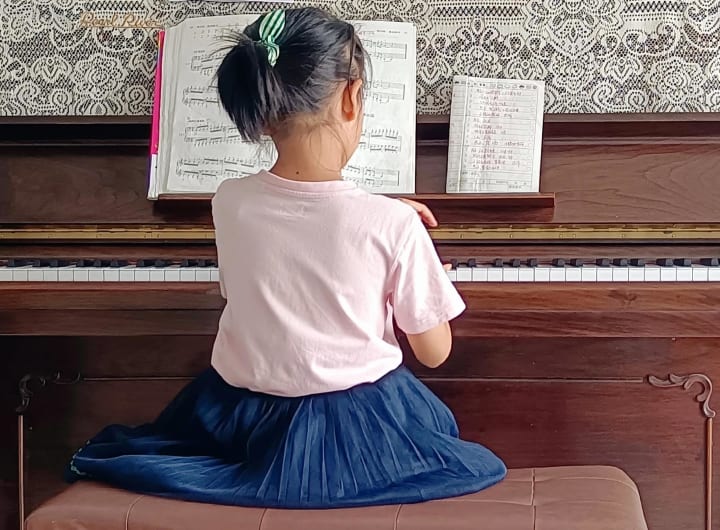
Life is a hundred years, founded in early childhood school. Preschool education is related to the healthy growth of hundreds of millions of children, the happiness and harmony of thousands of families, the development of the country, and the future of the nation.
Since the 18th Party Congress, the Party Central Committee and the State Council have attached great importance to preschool education, vigorously promoting the reform of institutional mechanisms and implementing successive action plans, so that the total amount of educational resources has increased rapidly and the level of universal access has increased significantly. In 2018, the "Opinions of the CPC Central Committee and State Council on the deepening reform and standardized development of preschool education" was issued, which is the first preschool education document issued in the name of the Party Central Committee, further clarifying The basic direction of preschool education for the public good and the benefit of all, and put forward major policy initiatives to promote the universal, inclusive, safe and high-quality development of preschool education. This decade, preschool education is based on national conditions, and innovation, and has made leaps and bounds of development.
The level of universal preschool education has increased significantly
Lv Yugang, director of the Department of Basic Education of the Ministry of Education, said that around the crack "difficult to enter the garden", China has continued to expand the supply of preschool education resources to ensure that "there is a garden", to achieve "young children have education".
Data show that over the past decade, the total number of preschool education resources has increased rapidly, with the number of kindergartens nationwide reaching 295,000 in 2021, an increase of 128,000 over 2011, an increase of 76.8 percent, which strongly protects the increasing demand for school-age children to attend school. The gross enrollment rate continues to increase rapidly, with the number of children in kindergartens nationwide reaching 48.052 million in 2021, an increase of 13.808 million over 2011, and the national gross enrollment rate for the first three years of preschool increasing from 62.3% in 2011 to 88.1% in 2021, an increase of 25.8 percentage points, with preschool education achieving basic universality.
Among them, the fastest development in the central and western regions and rural areas, the country's new kindergartens, about 80% concentrated in the central and western regions, about 60% distributed in rural areas. During the decade, the 13 provinces with a gross enrollment rate increase of more than 30% were all concentrated in the central and western provinces. The formerly deeply impoverished areas saw a significant increase in attendance rates, for example, from 15.8% to 95.5% in Linxia Hui Autonomous Prefecture in Gansu and from 25.6% to 90.01% in Nujiang Lisu Autonomous Prefecture in Yunnan. "Preschool education has significantly narrowed the gap between regions and urban and rural areas." Lv Yugang said.

"In fact, 'it is difficult to get into kindergarten' is 'difficult to get into public kindergarten,' and there is a shortage of public education resources everywhere; 'it is expensive to get into kindergarten' is 'expensive to enter a high-quality private garden'." In the view of Zhang Zhiyong, executive director of the China Education Policy Research Institute of Beijing Normal University, the solution to the "difficult" and "expensive" is to adhere to the development direction of preschool education for the public good and inclusive, and accelerate the development of public welfare and inclusive preschool education.
Around cracking the "expensive", China is focusing on building a system of inclusive resources as the main school to achieve "affordable".
The structure of preschool education resources has undergone significant changes. In 2021, the number of inclusive kindergartens (including public and private inclusive kindergartens) nationwide reached 245,000, accounting for 83% of the total number of kindergartens, an increase of 149.7% over 2011. The level of inclusive education has increased significantly, with the percentage of children in inclusive kindergartens nationwide reaching 87.8% in 2021, an increase of 20.5 percentage points over 2016.
The public service network of preschool education has been gradually improved, with the coverage rate of rural inclusive kindergartens reaching 90.6% in 2021, and each township has a public central park, with large villages running independent kindergartens and small villages jointly running kindergartens; adapting to the process of urbanization and continuously expanding urban inclusive resources, especially the comprehensive governance of urban district supporting kindergartens, with a total of more than 20,000 kindergartens under governance and an increase of inclusive school places There are 4.16 million kindergartens. The public service system of urban and rural preschool education has been completed, meeting the people's desire to let their children enter kindergarten at home.
Teachers' academic structure further optimized
In terms of teacher training, the scale of preschool teacher training in China has been expanding, and in 2021, there will be 1,095 undergraduate colleges and universities offering preschool education, with 265,000 graduates, an increase of 591 and 231,000 respectively compared to 2011, an increase of 1.2 times and 6.7 times, providing strong support for the continuous replenishment of kindergarten teachers.
In 2021, the total number of kindergarten directors and full-time teachers will exceed 3.5 million, an increase of 2 million or 1.3 times compared with 2011; the student-teacher ratio will drop from 26:1 in 2011 to 15:1 in 2021, basically reaching the standard of "two teachers and one security", and the shortage of teachers will be effectively alleviated. The shortage problem has been effectively alleviated.
The quality of teachers' academic structure has been further optimized, and the proportion of directors and full-time teachers with a specialist degree or above reached 87.8% in 2021, an increase of 24 percentage points over 2011. The "National Training Program" for kindergarten teachers has been continuously implemented, with a total investment of 4.3 billion yuan from 2012 to 2020, training kindergarten teachers more than 2.43 million times, and continuously improving the professional level of teachers.
The financial investment in preschool education has continued to increase over the past decade, and in 2020, the national financial investment in preschool education will be 253.2 billion yuan, a five-fold increase from 41.6 billion yuan in 2011. The central financial support for preschool education development special funds in 10 years accumulated more than 170 billion yuan, effectively pulling the rapid growth of local financial investment, and providing a strong guarantee for the development of preschool education.
"Cost-sharing mechanism is established, the provinces have introduced the average public funding standards for public parks or the average financial allocation standards for students, subsidies for inclusive private parks, and constantly improve according to the needs of career development. At the same time, taking into account the level of economic development, the affordability of the masses and the cost of running a school and other factors, dynamic adjustment of public kindergarten fees, to determine the maximum fee limit of the inclusive private garden, to effectively protect the normal operation of kindergartens." According to Lv Yugang, the cumulative financial investment at all levels from 2012-2021 is 75.2 billion yuan, with a total of 62.32 million subsidies for children from economically disadvantaged families, effectively guaranteeing the right of children from economically disadvantaged families, orphans, and children with disabilities to enjoy preschool education fairly.
Scientific assessment to steadily improve the quality of preschools
Not only do we need to "have a garden", but we also need to "go to a good garden", so how to further promote the high-quality development of preschool education, and how to do a good job of kindergarten quality assessment has attracted much attention.
Around the crack of "primary schooling", the country adheres to the internal construction of preschool education and career development to promote synchronization, to ensure that the "good garden". The Ministry of Education has issued a series of important documents, such as "Guideline for Kindergarten Education", "Guidelines for the Learning and Development of Children Aged 3-6", "Guidance on Promoting the Scientific Interface between Kindergarten and Primary School" and "Guidelines for Assessing the Quality of Kindergarten Care and Education", establishing a relatively complete guidance system and providing strong professional leadership for scientific education.
When the "Guidelines for Assessing the Quality of Kindergarten Care and Education" (the "Assessment Guidelines") were officially released in February this year, they once aroused widespread concern in society. The "Assessment Guide", in the view of Jiang Jin, the implementation of the "Assessment Guide", depends on whether the past quality assessment process of "external assessment rather than internal assessment, results rather than process, hardware rather than substance" of non-scientific and utilitarian orientation.
"For a long time in the past, with more external assessments around the world, self-assessment is relatively weak. Therefore, one of the most urgent tasks at present is to do a solid self-assessment and establish a self-assessment mechanism. Combined with the local reality, how to carry out self-assessment of kindergartens, how to improve the scientific and effective self-assessment and other issues, to carry out in-depth and detailed practical exploration and research, to guide kindergartens from a passive recipient of assessment to an active assessor, to truly achieve the purpose of 'assessment for construction."
About the Creator
Ensenada
One cannot eat one's cake and have it.






Comments
There are no comments for this story
Be the first to respond and start the conversation.